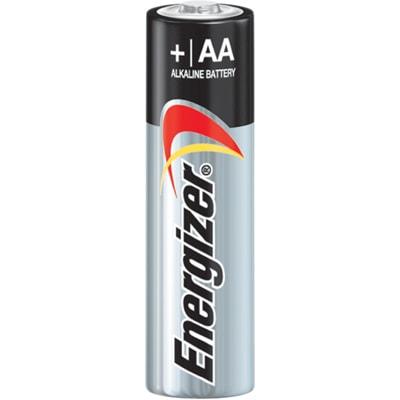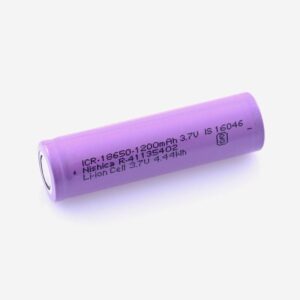Last Updated on October 22, 2023 by Kevin Chen
You are given two battery options, E91 and Lithium batteries. Which one should you choose and why should you go for a particular option over the other?
Lithium batteries and lead acid batteries form the largest percentage of the battery market today. Both are rechargeable and come with a set of pros and cons. Before you choose any of these two battery types for your electronic components, you should know what you are getting yourself into.
In this article, we are going to break down the differences between E91 vs Lithium batteries. This information will help you make a smart decision regarding the battery type you should buy.
Overview of E91 batteries
Image source US.rs Online
E91 batteries are alkaline batteries that are used in a wide range of electronic applications. They are produced by major battery manufacturers such as Energizer, Duracell, and Panasonic among many other options. You can also buy them from reputable E91 battery suppliers in China.
Also known as AA batteries, the E91 batteries are used for powering devices like portable radios, remote controls flashlights among many others. Their size i9s among the top reasons for their popularity as they are easily portable.
E91 batteries are cylindrical in shape and have a nominal voltage of 1.5 volts. In terms of shape design and dimensions, they are cylindrical with a diameter of 14.5 mm and length of 50.5 mm.
The chemical composition of the E91 batteries comprises of manganese dioxide on the positive electrode and zinc on the negative electrode. An alkaline formula makes up the battery’s electrolyte.
In overall, E91 batteries have a sufficient energy density, which is higher than most of the batteries in the market. What make sit even better is they feature small or compact package. In addition to that, they have quite a long shelf life. This sounds like a good feature to those willing to get into the business of selling E91 batteries.
Overview of Lithium batteries
Lithium battery image source Quartz
Lithium is the main component that forms the chemical reaction of the lithium batteries. Just like for the E91, lithium batteries have a wide range of applications thanks to their numerous desirable features. You will find them in smartphones, digital cameras, flashlight devices and even on large-scale applications such as electric vehicles, power systems and electric bikes.
Lithium batteries come in a broad range of sizes and specifications. Some are small and portable while others are quite sizable. The size and specs will always depend on the application area of the battery.
Other than the physical dimension, lithium batteries also have different chemical compositions among themselves. These chemistries include lithium-polymer, lithium-ion phosphate and plain lithium-ion. The difference may cause some variation in terms of the battery performance.
The main driving force behind the popularity of the lithium batteries is high energy density. They are able to store significant amount of energy in small packages. This explains why most portable devices use lithium batteries.
One thing about these batteries is they are rechargeable. You can restore the energy of the battery by recharging it. Long cycle life is another key reason behind the popularity of the lithium batteries. This simply means that you can recharge the battery several times before it depletes its energy. The low discharge rate of the lithium battery means that they have the capacity to retain their charge for long. This means that your device will run for quite long when you use lithium batteries.
However, you will have to part with extra money to enjoy the full benefits that come with lithium batteries. In short, they are more expensive than their alkali alternatives.
Comparing E91 batteries vs Lithium batteries
Now that you know the basics of the two battery types, it is time to do a side-by-side comparison of the two.
Chemistry
The first difference is in terms of their chemical composition. E91 has an alkali battery composition while Lithium is the main chemical that makes up the lithium battery. The alkaline electrolyte in E91 stimulates the chemical reaction between zinc electrode and the manganese dioxide electrode to produce the DC energy.
On the other hand, the chemical composition of lithium battery mainly comprises of lithium compounds. The lithium ion electrolyte facilitates the movement of charges between the positive and negative electrodes.
Voltage
The difference between E91 vs lithium also comes out in terms of their voltage. E91 has a fixed nominal voltage which is 1.5V. This means that it be used only on applications that need to be powered by 1.5V.
Lithium batteries, on the other hand come in a wide range of voltage options. They can be as low as 3V and as high as 72 volts. The volts that you choose will depend on your power needs. In short, lithium batteries give you freedom to power different devices regardless of their power requirement.
Operating temperature
Lithium batteries have a higher operating temperature than the E91 battery. This also means that Lithium batteries can be used in different areas that experience harsher environmental conditions. The performance of the lithium battery is rarely affected by the external temperature conditions.
On the other hand, e91 batteries are highly affected by the temperature outside. Too cold or too hot conditions can lead to poor performance by the batteries.
Cost
In terms of the cost, you will pay a higher price for the lithium batteries than for the E91 batteries. From the features that we have already discussed here, it is clear that lithium batteries have more superior features hence better performance than the alkaline batteries.
So, if you are keen on cheap options, e91 batteries may come in handy. But this will only for a limited range of applications. Remember that that many other variables will determine the price that you pay for the battery, including where you buy.
Conclusion
In this guide, we have laid out clear differences between E91 batteries and lithium batteries. You know which one to buy and where to use. Regardless of the type, ensure that you buy high quality batteries from reputable suppliers.
If you want to find more Electronic Components Distributors, please check out the following articles:
Electronic Components Distributors In the USA
Electronic Components Distributors In UK
Electronic Components Distributors In China
Electronic Components Distributors In India
Electronic Components Distributors In Singapore
Electronic Components Distributors In Malaysia
Electronic Components Distributors In Vietnam
Electronic Components Distributors In South Korea
- Where to buy IC chips? The Best Guide? - March 26, 2024
- Breaking Down Barriers: Overcoming Obstacles in Cross-Border Electronic Component Trade - March 4, 2024
- Everything You Need to Know About Amplifier IC Chips - March 4, 2024






